- Home
- Warhammer 40K
Forge of Mars - Graham McNeill Page 5
Forge of Mars - Graham McNeill Read online
Page 5
‘I do not wager, Mister Nader,’ said Pavelka. ‘You own nothing I desire, and none of my possessions would be of any use to you without extensive redesign of your ventral anatomy.’
‘Leave it alone, Emil,’ said Roboute, as he saw Nader about to answer Pavelka’s statement with something inflammatory. ‘Just concentrate on getting us up there in one piece. If we stray so much as a kilometre from our assigned path, it’ll put a snarl in the orbital traffic worse than that time over Cadia when that officer on the Gathalamor shot up his bridge, remember?’
Emil shook his head. ‘I try not to. But what did they expect, giving a ship a name like that? You might as well call it the Horus and be done with it.’
‘Don’t say that name!’ hissed Adara Siavash, lounging in Gideon Teivel’s vacant astropath station with a las-lock pistol spinning in one hand and a butterfly blade in the other. ‘It’s bad luck.’
Roboute wasn’t exactly sure what rank or position Adara Siavash held on the Renard. He’d come aboard on a cargo run between Joura and Lodan, and never left. He was lethal with a blade and could fire a rifle with a skill that would have earned him a marksman’s lanyard in the Iax Defence Auxilia. He’d saved Roboute’s life on that run, putting down a passenger who’d turned out to be an unsanctioned psyker and who’d almost killed everyone aboard when they’d translated. Yet for all that, Roboute couldn’t help but think of him as a young boy, such was his childlike innocence and constant wonder at the galaxy’s strangeness.
Sometimes Roboute almost envied him.
‘The lad’s right,’ he said, as he sensed a kink in the ship’s systems. ‘Don’t say that name.’
His first mate shrugged, but Roboute saw that Emil knew he’d crossed a line.
The crew carried on with their assigned tasks and Roboute brought the current shipboard operations up onto the inner surfaces of his retina. A mass of gold-cored cables trailed from the base of his neck to the command throne upon which he sat, feeding him real-time data from the various active bridge stations. Trajectories, approach vectors, fuel consumption and closure speeds scrolled past, together with noospheric identity tags for the hundreds of vessels in orbit.
Everything was looking good, though a number of the engineering systems were running closer to capacity than he’d like. Roboute opened a vox-link to the engineering spaces, almost two kilometres behind him.
‘Kayrn, are you seeing what I am on the coolant feed levels to the engines?’ he asked.
‘Of course I am,’ came the voice of Kayrn Sylkwood, the Renard’s enginseer. ‘I perform six hundred and four system checks every minute. I know more about these engines than you ever will.’
Emil leaned over and whispered, ‘You had to ask. You always have to ask.’
Kayrn Sylkwood was ex-Guard, a veteran enginseer of the Cadian campaigns. She’d been mustered out of the regiment after taking one too many shots to the head on Nemesis Tessera during the last spasm of invasion from the Dreaded Eye. Below Guard fitness requirements and having lost three tanks under her care, the Mechanicus didn’t want her either, but Roboute had recognised her rare skill in coaxing the best from engines that needed a sympathetic touch or a kick in the arse.
‘Just keep an eye on it,’ he said, shutting off the link before Sylkwood could berate him again.
Despite any slight running concerns about the engines, the Renard was a ship like no other Roboute had known. She was fast, nimble (as far as a three-kilometre vessel could be) and carried enough cargo to make running her profitable on local-system runs. Even the odd sector run wasn’t beyond her capabilities, but Roboute never liked stretching her that far. She hadn’t let him down in the fifteen years he’d captained her, and that kind of respect had to be earned.
‘Promethium tender coming in below and behind us,’ noted Emil. ‘She’s burning hotter than I’d like, and it’s closing on an elliptical course.’
‘Probably some planetside dock overseer feeling the whips of his masters to cut the lag on his orbital deliveries,’ replied Roboute. ‘How close is she?’
‘Two thousand kilometres, but her apogee will put her within fifteen hundred if we don’t course correct.’
‘No,’ said Roboute. ‘Two thousand, fifteen hundred, what does it matter? If she goes up, all we’ll see is the flash before we’re incinerated. Conserve fuel and stay on course.’
Roboute wasn’t worried about the danger of collision – even the closest ships had gulfs of hundreds of kilometres between them – what worried the ship masters of each fleet was the threat of delay to their departure schedules. And Roboute didn’t intend to compound that delay by being late for his first face-to-face meeting with Lexell Kotov.
The archmagos had made it clear that such a breach of protocol would not be tolerated.
Of all the bright lights thronging the sky, the brightest and biggest now hove into view as Emil made a final manoeuvring burn.
Even Roboute had to admit to being mightily impressed with this ship. He’d flown the length and breadth of more than one sector, but he had yet to see anything to match this for sheer scale and grandeur.
‘Adara,’ said Roboute. ‘Go below and inform Magos Tychon that we’ll be docking with the Speranza soon.’
The dockers’ bar didn’t have a name; no one had ever thought to give it one. But everyone around the busy port knew it, a bunch of converted cargo containers welded together and fitted with rudimentary power and plumbing. Who really ran it was unclear, but a steady stream of disgruntled and exhausted dock workers could always be found filling its echoing, metallic spaces.
‘This is where you do your off-duty drinking?’ said Ismael, his slurred tone telling Abrehem and Coyne exactly what he thought of this dive. ‘No wonder we’re usually behind schedule.’
Abrehem was already regretting taking the overseer up on his offer of drinks for the crane crew, but it was too late to back out now. They’d made their quota, for the first time in weeks, and Ismael had offered to take them out drinking in a rare moment of largesse.
‘Yeah,’ said Abrehem. ‘It’s not much, but we like it.’
‘Damn, it stinks,’ said Ismael, his face screwed up in disgust.
The loader-overseer was already drunk. The shine served at the first few bars they’d visited had almost knocked him off his feet. Ismael didn’t drink much, and it was showing in his mean temper and cruel jokes at the expense of men who didn’t dare answer back.
A nighttime crowd already thronged the bar’s bench seats, and the pungent reek of engine oil, grease, lifter-fuel, sweat and hopelessness caught in the back of his throat. Abrehem knew the aroma well, because he stank of it too.
Faces turned to stare at them as Ismael pushed his way through the crowd of dock workers to the bar, a series of planks set up on a pair of trestles, upon which sat two vats that had once been the promethium drums of a Hellhound. Some men claimed to be able to tell what kind of tanks the varieties of shine had been brewed in, that each one gave a subtly different flavour, but how anyone could taste anything after a few mouthfuls was beyond Abrehem.
Coyne took Abrehem’s arm as he set off after Ismael.
‘Thor’s balls, you shouldn’t have taken him up on that drink,’ whispered his fellow operator.
Abrehem knew that fine well, but tried to put his best face on. ‘Come on, he’s not a bad boss.’
‘No,’ agreed Coyne. ‘I’ve had worse, that’s for sure, but there’s some lines you just shouldn’t cross.’
‘And getting drunk on shine with a man that can get you thrown off shift is one of them, I know.’
‘We’ll be lucky if he gets away without a beating tonight,’ said Coyne. ‘And when he wakes up with a cracked skull, we’ll be the ones he blames. I can’t lose this assignment, Abrehem, I’ve a wife and three young’uns to support.’
‘I know that,’ said Abrehem, annoyed that
Coyne always thought of his own woes before anyone else’s. Abrehem had a wife too, though she was a stranger to him now. Both their young ones had died of lung-rust before their fifth year, and the loss had broken them beyond repair. Toxic exhalations from the sprawling Mechanicus refineries fogged the hab-zones surrounding the Navy docks, and the young were particularly susceptible to the corrosive atmospherics.
‘Come on,’ said Coyne. ‘Let’s try and get this over while we still have jobs.’
‘We’ll have one drink and then we’ll go,’ promised Abrehem, threading his way through the sullen drinkers towards the bar. He could already hear Ismael’s nasal voice over the simmering hubbub of gloomy conversation. Abrehem knew most of the faces, fellow grafters on the back-breaking labour shifts handling the supply needs of a busy tithe-world.
Times were busy enough normally, but with the Mechanicus fleet at high anchor needing to be furnished with supplies to last an indefinite time, the docks and their workers were being stretched to breaking point. Yes, there had been some accidents and deaths that could no doubt be traced back to excessive consumption of shine distilled in scavenged fuel drums, but the lives of a few drunk dockers mattered little in the grand scheme of things.
Hundreds of fleet tenders were making daily trips back and forth from the loading platforms, fat and groaning with weapons, ammo, food, fuel, spare uniforms, engine parts, machine parts, surgical supplies, millions of gallons of refined fluids for lubrication, drinking, anointing and who knew what else. It was hard, dangerous work, but it was work, and no man of Joura could afford to pass up a steady, reliable credit-stream.
Abrehem reached the bar to find Ismael loudly arguing with the shaven-headed barkeep at the drum. With a gene-bulked and partially augmented ogryn nearby, it was a poor fight to pick. Abrehem had seen the creature take off a man’s head with the merest twist of its wrist, and knew it wasn’t above a bit of casual violence when its tiny brain was fogged with shine. The filters in his eyes read the scrubbed ident-codes on the augmetics applied to the ogryn’s arms and cranium.
Backstreet, fifth-gen knock-offs. Crude and cheap, but effective.
‘Have you tried this?’ demanded Ismael. ‘This bloody idiot is trying to poison me!’
‘It’s a special blend,’ said Abrehem, taking a glass from the barkeep and sliding an extra couple of credit wafers across the bar. ‘Unique, in fact. Takes a bit of getting used to, that’s all.’
The barkeep gave him a fixed stare and nodded to the exit. Abrehem understood and took the three drinks from the bar as Coyne steered Ismael away from the glowering ogryn. With his overseer out of earshot, Abrehem leaned over the bar and said, ‘We’ll down these and be on our way. We’re not here for trouble.’
The barkeep grunted, and Abrehem followed Coyne and Ismael to a bench seat located in the corner of the containers away from most of the bar’s patrons. This part of the bar was mostly empty, located as it was next to the latrines. The stink of stale urine and excrement was pungent, and only marginally more offensive than the acrid fumes of their drinks.
‘Emperor’s guts,’ swore Ismael. ‘It stinks here.’
‘Yeah, but at least we have a seat,’ said Coyne. ‘And after a day’s shift at the docks, that’s all that matters, right?’
‘Sure,’ agreed Abrehem. ‘You get to our age and a seat’s important.’
‘I spend my days sitting down in a control cab,’ pointed out Ismael.
‘You do, we don’t,’ said Coyne, unable to keep the resentment from his voice.
Fortunately Ismael was too drunk to notice, and Abrehem shot Coyne a warning glance.
‘Come on, let’s sink these and we’ll get out of here,’ said Abrehem, but Ismael wasn’t listening. Abrehem followed his gaze and sighed as he saw a familiar face hunched low over a three-quarters-drunk bottle of shine.
‘Is that him?’ said Ismael.
‘Yeah, it’s him,’ agreed Abrehem, putting a hand on Ismael’s arm. ‘Leave him alone, it’s not worth it. Trust me.’
‘No,’ said Ismael, throwing off Abrehem’s hand with an ugly sneer. ‘I want to see what a real hero looks like.’
‘He’s not a hero, he’s a drunk, a liar and a waste of a pair of coveralls.’
Ismael wasn’t listening, and Abrehem gave Coyne a nod as their overseer made his way over to the man’s table. Abrehem saw the ogryn heft a length of rebar as long as Abrehem’s leg and start moving through the crowded bar, parting knots of men before it like a planetoid with its own gravitational field. A few of the more sober patrons, sensing trouble, headed for the exit, and Abrehem wished he could follow them.
He cursed and sat next to Ismael as he planted himself on a stool at the drunk’s table.
‘You’re him,’ said Ismael, but the man ignored him.
Abrehem studied the man’s face. Lined with exhaustion and old before its time, a network of ruptured capillaries around his ruddy cheeks and nose spoke of a lifetime lived in a bottle, but there was a hardness there too, reminding Abrehem that this man had once been a soldier in the Guard.
A bad soldier if the stories were to be believed, but a soldier nonetheless.
‘I said, “you’re him”, aren’t you?’ said Ismael.
‘Go away,’ said the man, and Abrehem heard the sadness in his voice. ‘Please.’
‘I know you’re him,’ said Ismael, leaning forwards over the table. ‘I saw you on shift last week, and heard all about you.’
‘Then you don’t need me to tell you again,’ said the man, and Abrehem realised he wasn’t drunk.
The bottle in front of him was an old one, and the drink in his hand was untouched.
‘I want to hear you tell it,’ said Ismael, his tone viperous.
‘Why bother? I’ve told it over and over, and no one believes me,’ said the man.
‘Come on, hero, tell me how you killed the Iron Warrior. Did you breathe on him and he keeled over dead?’
‘Please,’ said the man, an edge of steel in his voice. ‘I asked you nicely to leave me alone.’
‘No, not till you tell me how you took on an entire army of Traitor Space Marines,’ spat Ismael, reaching for the man’s bottle.
The man slapped Ismael’s hand away and before anyone could stop him, he had a knife at the overseer’s throat. It glinted dully in the low light. Abrehem scanned the serial number on the blade: 250371, Guard-issue, carbon steel and a killing edge that could cut deeper than a fusion-weld in the right hands.
The ogryn reached their table, the rebar slamming down and sending their drinks flying. Broken glass and splintered wood flew. Abrehem fell away from the table onto the ribbed floor. The stink was worse down here, and he rolled as the ogryn stepped in close to where Ismael was pinned against the wall by the knife-wielding man.
‘Put down knife. Put down man,’ said the ogryn in halting, child-like speech.
The man didn’t acknowledge its words, pressing the knife into Ismael’s throat with enough force to draw a thin line of blood.
‘I’d kill you if I thought it would stop anyone else asking the same damned questions over and over,’ said the man. ‘Or maybe I’ll just kill you because I feel like crap today.’
‘Put knife down. Put man down,’ repeated the ogryn.
Before the man could comply, metal shutter doors throughout the bar crashed open and a chorus of vox-amplified voices blared inside. Sodium-tinged light flooded through the doors and from his vantage point on the floor, Abrehem saw strobing spotlights mounted on the backs of giant vehicles. Black-armoured figures poured into the bar, clubbing men to the ground with vicious blows from shock mauls and the butts of automatic shotguns. Metal-skinned hounds on chain-leashes barked with augmetic anger, their polished steel fangs bared. Hungry red eyes fixed on the bar’s patrons.
‘Collarmen!’ shouted Coyne, scrambling away from the overturned ta
ble. Abrehem struggled to his feet, suddenly sober at the sight of the impressment teams as they dragged men out to the rumbling confinement vehicles. The man with the knife stepped away from Ismael, and the overseer bolted for the nearest way out, sobbing in fear and confusion.
The bar was in uproar. Concussion sirens brayed and blinding light strobed through the bar, all designed to stun and disorientate. Abrehem’s ocular cutoffs screened him from the worst of the light, but the horns were still deafening. Men encased in black leather and gleaming carapace armour with bronze, faceless helmets swept through the bar like soldiers clearing a room. Abrehem saw Ismael shot in the back by a soft round and slammed into a metal wall with the force of the impact. He slumped to the ground, unconscious, and two of the growling cyber-hounds dragged the overseer’s limp body outside.
A hand grabbed his shoulder. ‘We’ve got to get out of here!’ cried Coyne.
Abrehem looked for a way out. The collarmen and their mastiffs had all the exits covered, or at least all the obvious ones. There had to be a few they didn’t know about.
‘This way,’ said the man with the knife. ‘If you don’t want to get taken, follow me.’
The man ran, but the ogryn grabbed him by the scruff of the neck as it dumbly watched the methodical subduing tactics of collarmen. Soft rounds slammed the ogryn, but it hardly seemed to feel them, and Abrehem rolled behind the grunting creature as it tried to make sense of what was happening and why these men were shooting it.
The knifeman struggled in the ogryn’s grip, but he was as helpless as a child against its strength.
‘Let go of me, damn you!’ yelled the man.
‘Forget him,’ said Coyne. ‘There’s a back way out through the latrines.’
Abrehem nodded and moved past the stupefied ogryn as a flurry of soft rounds battered the container wall next to his head. From the deformation of the sheet steel, Abrehem didn’t reckon those ‘soft’ rounds were particularly soft.

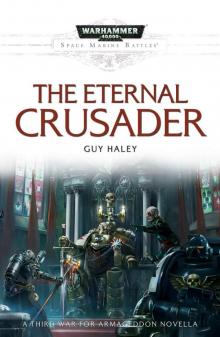 The Eternal Crusader - Guy Haley
The Eternal Crusader - Guy Haley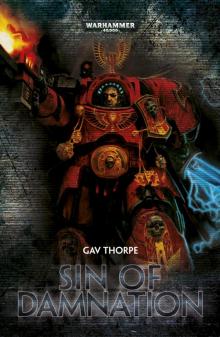 Sin of Damnation - Gav Thorpe
Sin of Damnation - Gav Thorpe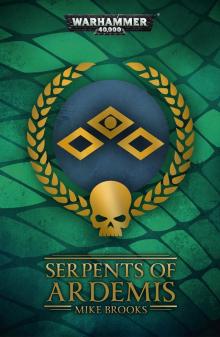 Serpents of Ardemis - Mike Brooks
Serpents of Ardemis - Mike Brooks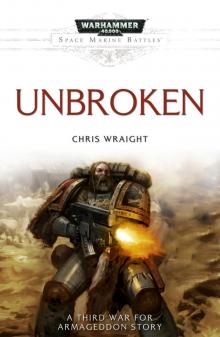 Unbroken - Chris Wraight
Unbroken - Chris Wraight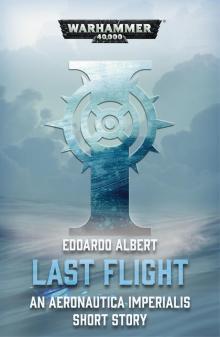 Last Flight - Edoardo Albert
Last Flight - Edoardo Albert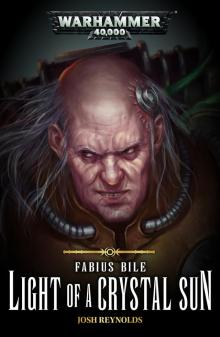 Light of a Crystal Sun - Josh Reynolds
Light of a Crystal Sun - Josh Reynolds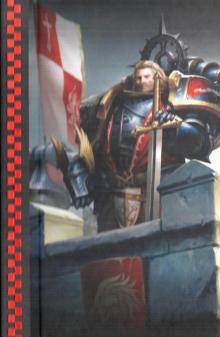 Lion El'Jonson- Lord of the First - David Guymer
Lion El'Jonson- Lord of the First - David Guymer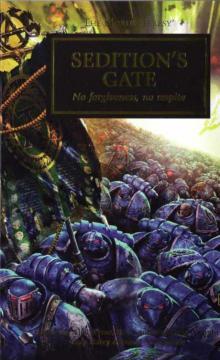 Sedition's Gate - Nick Kyme & Chris Wraight
Sedition's Gate - Nick Kyme & Chris Wraight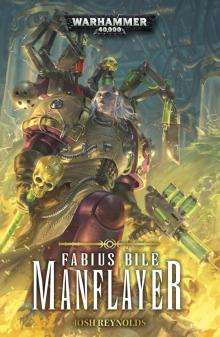 Manflayer - Josh Reynolds
Manflayer - Josh Reynolds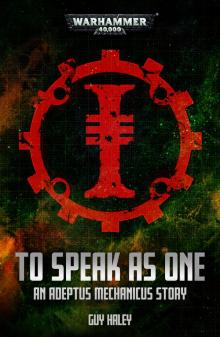 To Speak as One - Guy Haley
To Speak as One - Guy Haley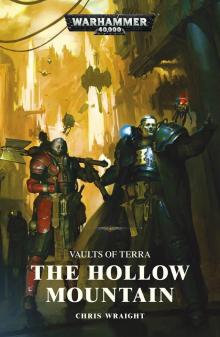 Vaults of Terra- The Hollow Mountain - Chris Wraight
Vaults of Terra- The Hollow Mountain - Chris Wraight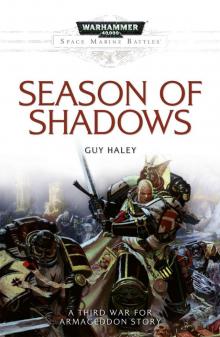 Season of Shadows - Guy Haley
Season of Shadows - Guy Haley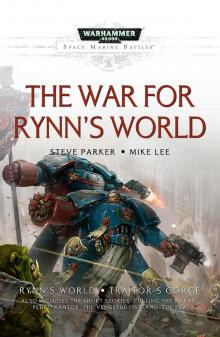 The War for Rynn's World - Steve Parker & Mike Lee
The War for Rynn's World - Steve Parker & Mike Lee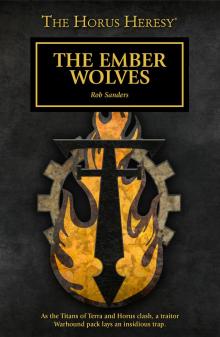 The Ember Wolves - Rob Sanders
The Ember Wolves - Rob Sanders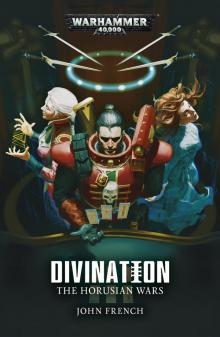 Divination - John French
Divination - John French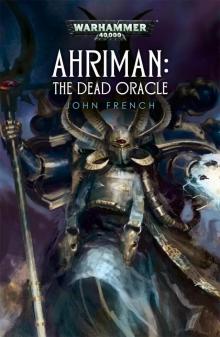 The Dead Oracle - John French
The Dead Oracle - John French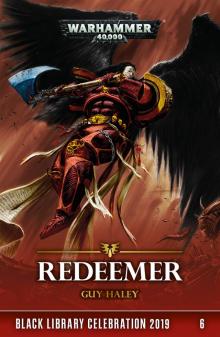 Redeemer - Guy Haley
Redeemer - Guy Haley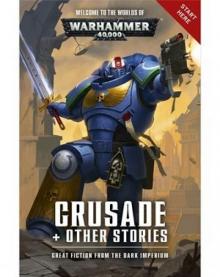 Crusade & Other Stories - Dan Abnett Et Al.
Crusade & Other Stories - Dan Abnett Et Al.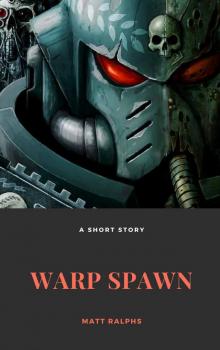 Warp Spawn - Matt Ralphs
Warp Spawn - Matt Ralphs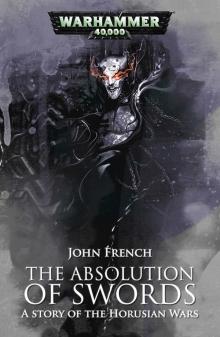 The Absolution of Swords - John French
The Absolution of Swords - John French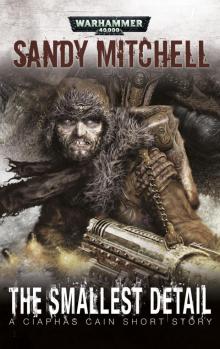 The Smallest Detail - Sandy Mitchell
The Smallest Detail - Sandy Mitchell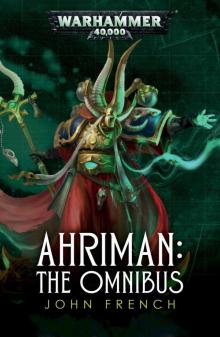 The Omnibus - John French
The Omnibus - John French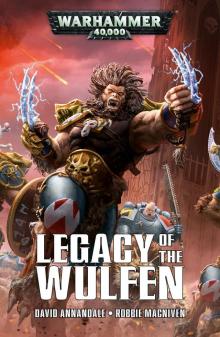 Legacy of the Wulfen - David Annandale & Robbie MacNiven
Legacy of the Wulfen - David Annandale & Robbie MacNiven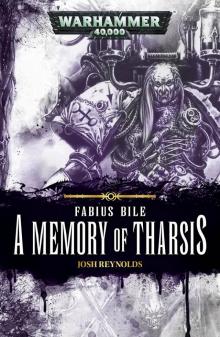 A Memory of Tharsis - Josh Reynolds
A Memory of Tharsis - Josh Reynolds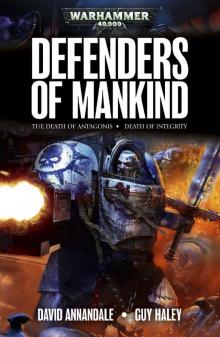 Defenders of Mankind - David Annandale & Guy Haley
Defenders of Mankind - David Annandale & Guy Haley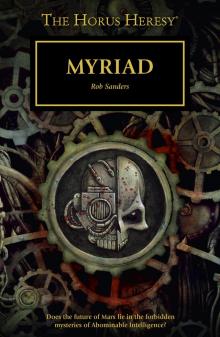 Myriad - Rob Sanders
Myriad - Rob Sanders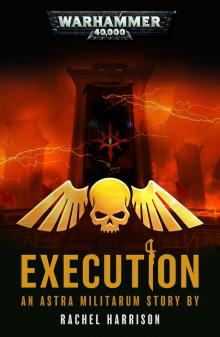 Execution - Rachel Harrison
Execution - Rachel Harrison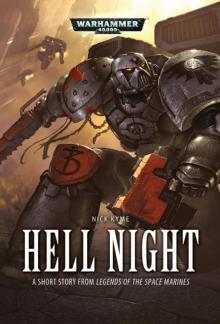 Hell Night - Nick Kyme
Hell Night - Nick Kyme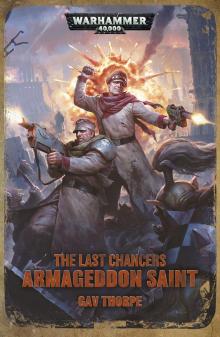 Armageddon Saint - Gav Thorpe
Armageddon Saint - Gav Thorpe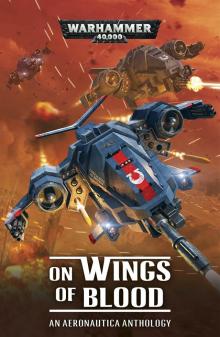 On Wings of Blood
On Wings of Blood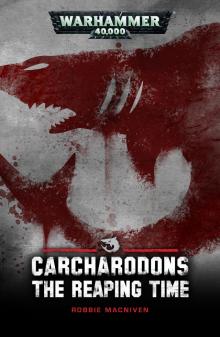 The Reaping Time - Robbie MacNiven
The Reaping Time - Robbie MacNiven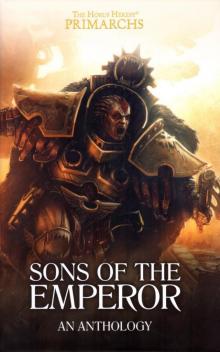 Sons of the Emperor
Sons of the Emperor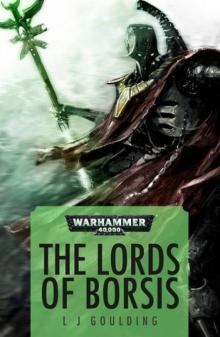 The Lords of Borsis - L J Goulding
The Lords of Borsis - L J Goulding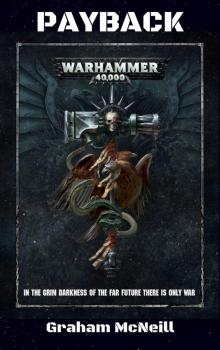 Payback - Graham McNeill
Payback - Graham McNeill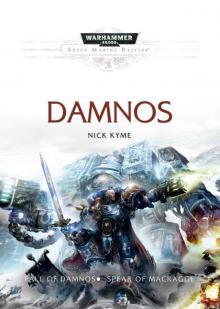 Damnos - Nick Kyme
Damnos - Nick Kyme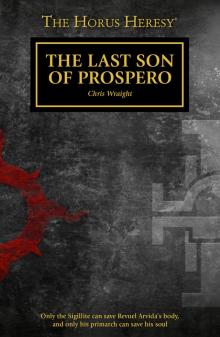 The Last Son of Prospero - Chris Wraight
The Last Son of Prospero - Chris Wraight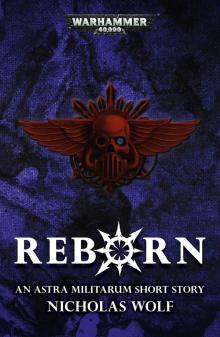 Reborn - Nicholas Wolf
Reborn - Nicholas Wolf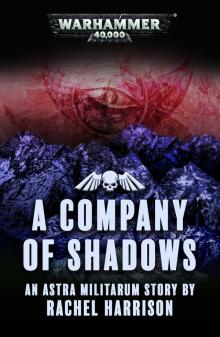 A Company of Shadows - Rachel Harrison
A Company of Shadows - Rachel Harrison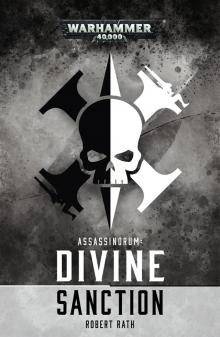 Assassinorum- Divine Sanction - Robert Rath
Assassinorum- Divine Sanction - Robert Rath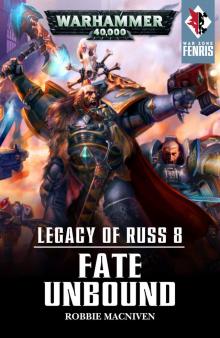 Fate Unbound - Robbie MacNiven
Fate Unbound - Robbie MacNiven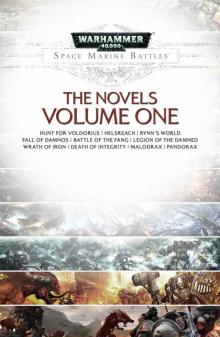 Space Marine Battles - the Novels Volume 1
Space Marine Battles - the Novels Volume 1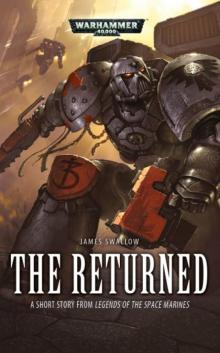 The Returned - James Swallow
The Returned - James Swallow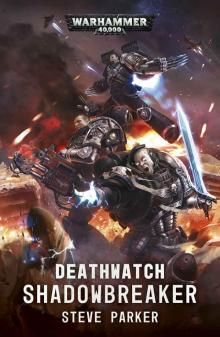 Shadowbreaker - Steve Parker
Shadowbreaker - Steve Parker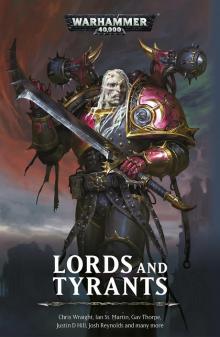 Lords and Tyrants
Lords and Tyrants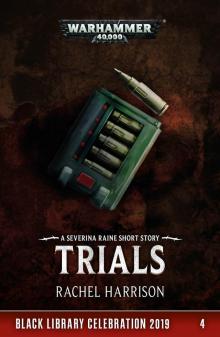 Trials - Rachel Harrison
Trials - Rachel Harrison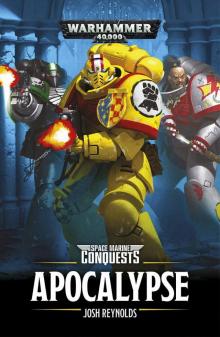 Apocalypse - Josh Reynolds
Apocalypse - Josh Reynolds The labyrinth - Richard Ford
The labyrinth - Richard Ford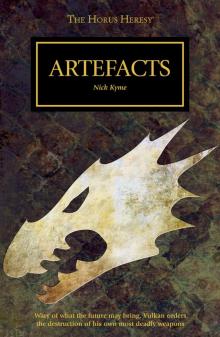 Artefacts - Nick Kyme
Artefacts - Nick Kyme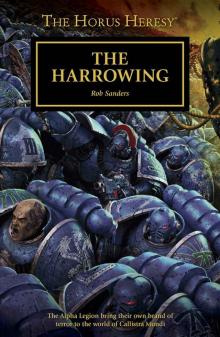 The Harrowing - Rob Sanders
The Harrowing - Rob Sanders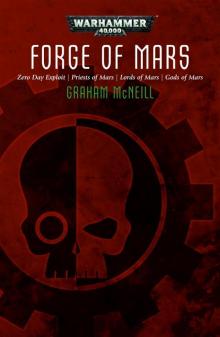 Forge of Mars - Graham McNeill
Forge of Mars - Graham McNeill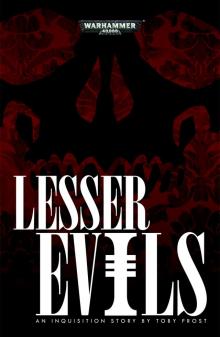 Lesser Evils - Toby Frost
Lesser Evils - Toby Frost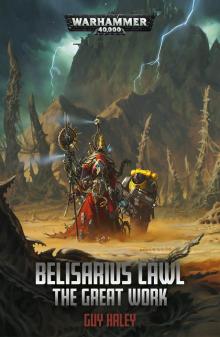 Belisarius Cawl- the Great Work - Guy Haley
Belisarius Cawl- the Great Work - Guy Haley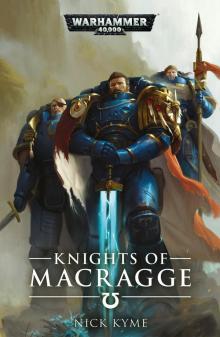 Knights of Macragge - Nick Kyme
Knights of Macragge - Nick Kyme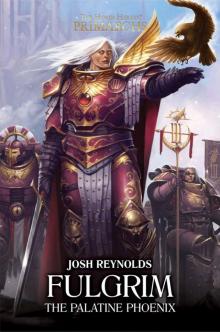 Fulgrim- The Palatine Phoenix - Josh Reynolds
Fulgrim- The Palatine Phoenix - Josh Reynolds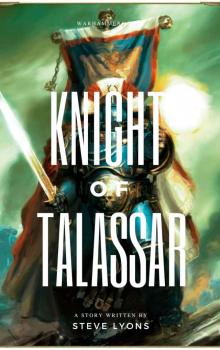 Knight of Talassar - Steve Lyons
Knight of Talassar - Steve Lyons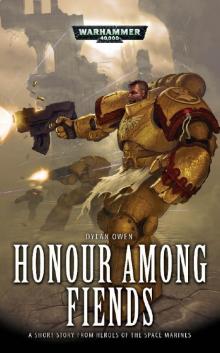 Honour Among Fiends - Dylan Owen
Honour Among Fiends - Dylan Owen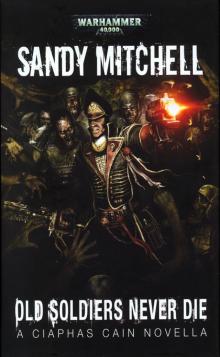 Old Soldiers Never Die - Sandy Mitchell
Old Soldiers Never Die - Sandy Mitchell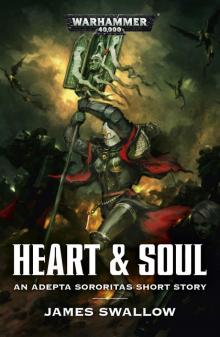 Heart & Soul - James Swallow
Heart & Soul - James Swallow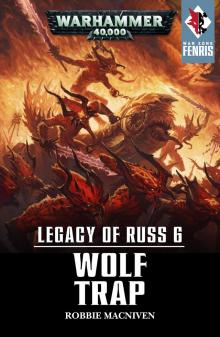 Wolf Trap - Robbie MacNiven
Wolf Trap - Robbie MacNiven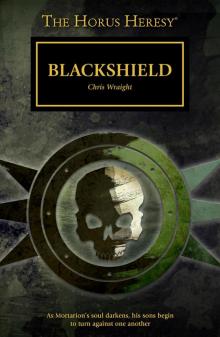 Blackshield - Chris Wraight
Blackshield - Chris Wraight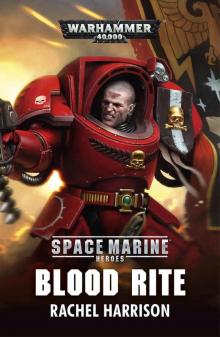 Blood Rite - Rachel Harrison
Blood Rite - Rachel Harrison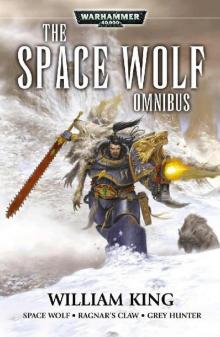 The Space Wolf Omnibus - William King
The Space Wolf Omnibus - William King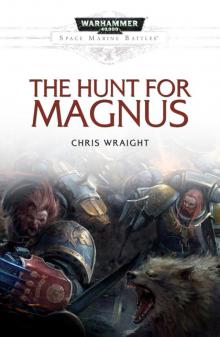 The Hunt for Magnus - Chris Wraight
The Hunt for Magnus - Chris Wraight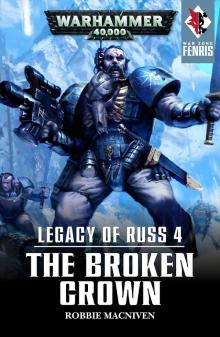 The Broken Crown - Robbie MacNiven
The Broken Crown - Robbie MacNiven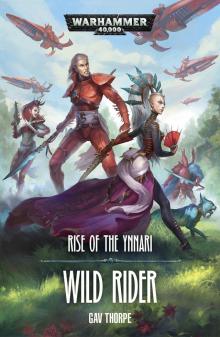 Wild Rider - Gav Thorpe
Wild Rider - Gav Thorpe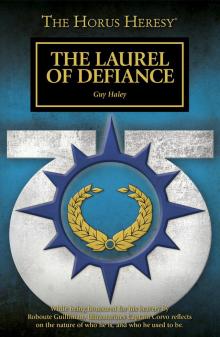 The Laurel of Defiance - Guy Haley
The Laurel of Defiance - Guy Haley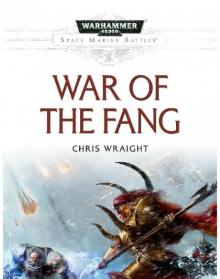 War of the Fang - Chris Wraight
War of the Fang - Chris Wraight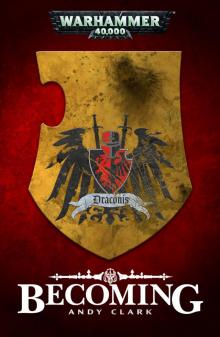 Becoming - Andy Clark
Becoming - Andy Clark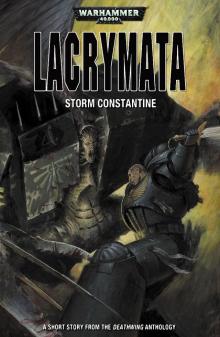 Lacrymata - Storm Constantine
Lacrymata - Storm Constantine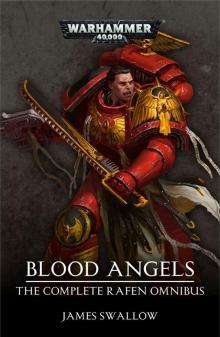 Blood Angels - The Complete Rafen Omnibus - James Swallow
Blood Angels - The Complete Rafen Omnibus - James Swallow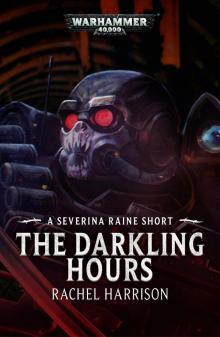 The Darkling Hours - Rachel Harrison
The Darkling Hours - Rachel Harrison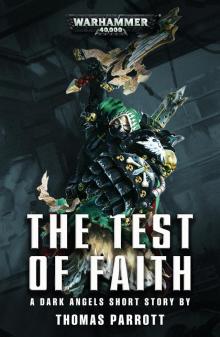 The Test of Faith - Thomas Parrott
The Test of Faith - Thomas Parrott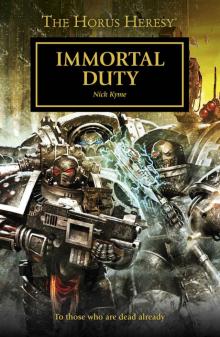 Immortal Duty - Nick Kyme
Immortal Duty - Nick Kyme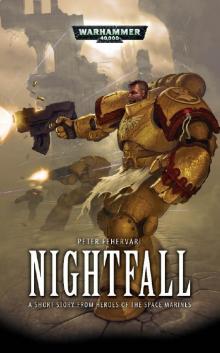 Nightfall - Peter Fehervari
Nightfall - Peter Fehervari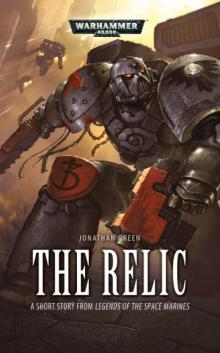 The Relic - Jonathan Green
The Relic - Jonathan Green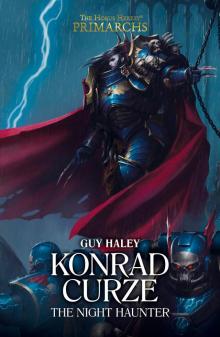 Konrad Curze the Night Haunter - Guy Haley
Konrad Curze the Night Haunter - Guy Haley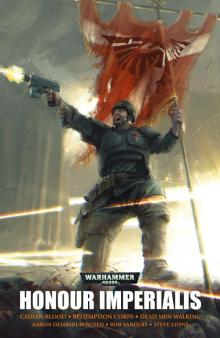 Honour Imperialis - Aaron Dembski-Bowden
Honour Imperialis - Aaron Dembski-Bowden The Final Compliance of Sixty-Three Fourteen - Guy Haley
The Final Compliance of Sixty-Three Fourteen - Guy Haley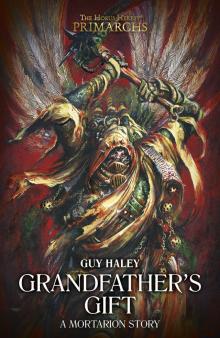 Grandfather’s Gift - Guy Haley
Grandfather’s Gift - Guy Haley Twisted - Guy Haley
Twisted - Guy Haley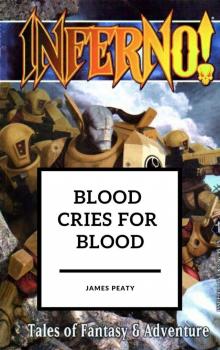 Blood Cries for Blood - James Peaty
Blood Cries for Blood - James Peaty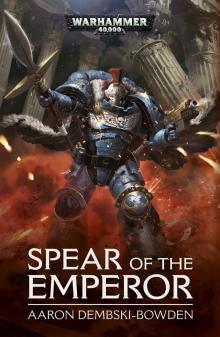 Spear of the Emperor - Aaron Dembski-Bowden
Spear of the Emperor - Aaron Dembski-Bowden All That Remains - James Swallow
All That Remains - James Swallow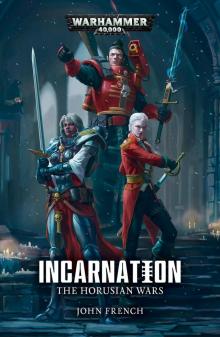 Incarnation - John French
Incarnation - John French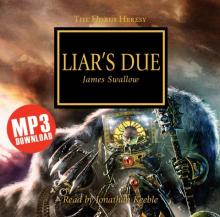 Liar's Due - Ben Swallow
Liar's Due - Ben Swallow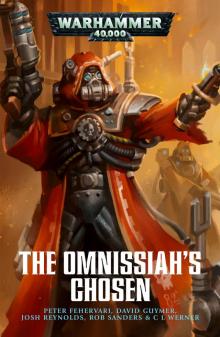 The Omnissiah's Chosen - Peter Fehervari
The Omnissiah's Chosen - Peter Fehervari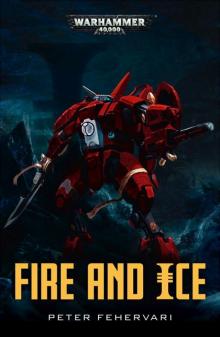 Fire and Ice - Peter Fehervari
Fire and Ice - Peter Fehervari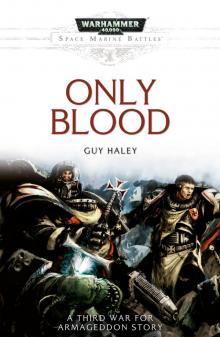 Only Blood - Guy Haley
Only Blood - Guy Haley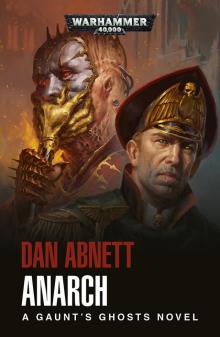 Anarch - Dan Abnett
Anarch - Dan Abnett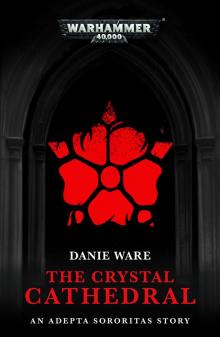 The Crystal Cathedral - Danie Ware
The Crystal Cathedral - Danie Ware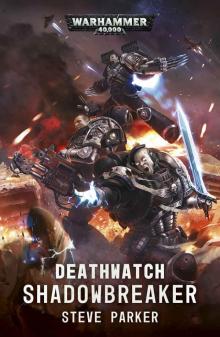 Shadowbreaker
Shadowbreaker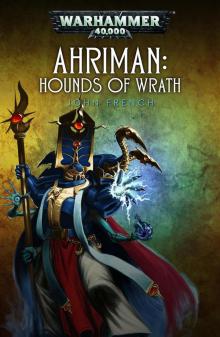 Hounds of Wrath - John French
Hounds of Wrath - John French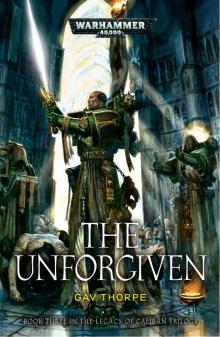 The Unforgiven - Gav Thorpe
The Unforgiven - Gav Thorpe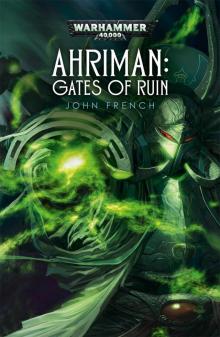 Gates of Ruin - John French
Gates of Ruin - John French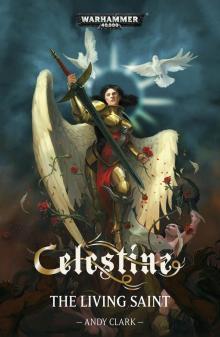 Celestine - Andy Clark
Celestine - Andy Clark Vorax - Matthew Farrer
Vorax - Matthew Farrer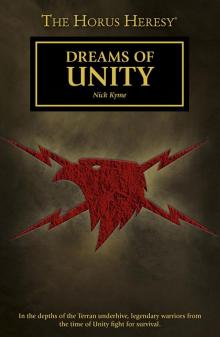 Dreams of Unity - Nick Kyme
Dreams of Unity - Nick Kyme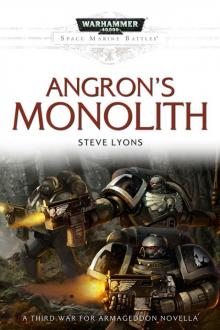 Angron's Monolith - Steve Lyons
Angron's Monolith - Steve Lyons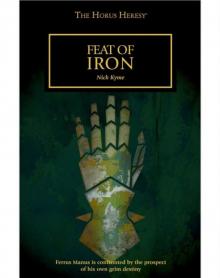 Feat of Iron - Nick Kyme
Feat of Iron - Nick Kyme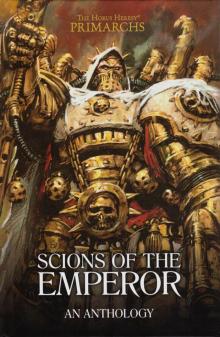 Scions of the Emperor
Scions of the Emperor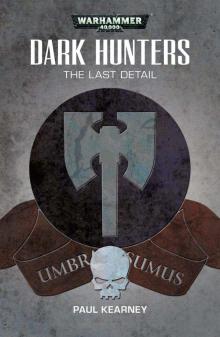 The Last Detail - Paul Kearney
The Last Detail - Paul Kearney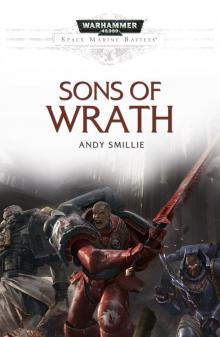 Sons of Wrath - Andy Smillie
Sons of Wrath - Andy Smillie Repentia - Alec Worley
Repentia - Alec Worley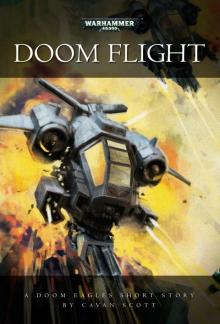 Doom Flight - Cavan Scott
Doom Flight - Cavan Scott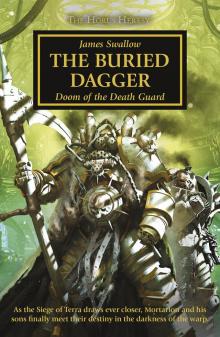 The Buried Dagger - James Swallow
The Buried Dagger - James Swallow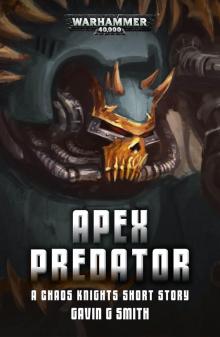 Apex Predator - Gavin G Smith
Apex Predator - Gavin G Smith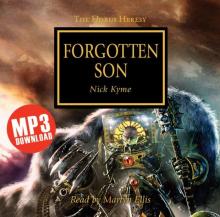 Forgotten Sons - Nick Kyme
Forgotten Sons - Nick Kyme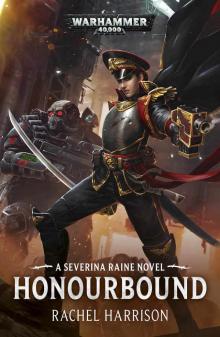 Honourbound - Rachel Harrison
Honourbound - Rachel Harrison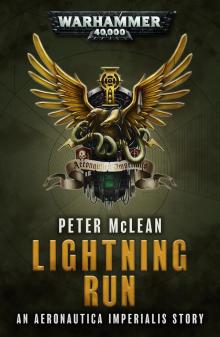 Lightning Run - Peter McLean
Lightning Run - Peter McLean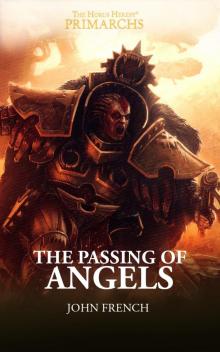 The Passing of Angels - John French
The Passing of Angels - John French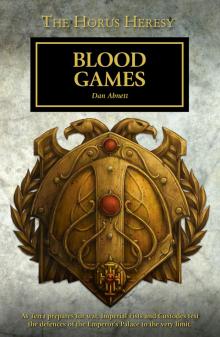 Blood Games - Dan Abnett
Blood Games - Dan Abnett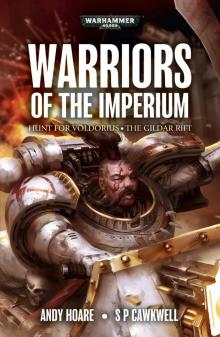 Warriors of the Imperium - Andy Hoare & S P Cawkwell
Warriors of the Imperium - Andy Hoare & S P Cawkwell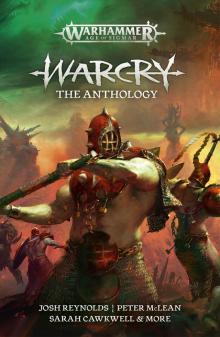 Warcry
Warcry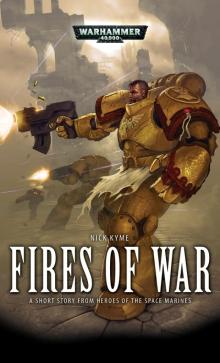 Fires of War - Nick Kyme
Fires of War - Nick Kyme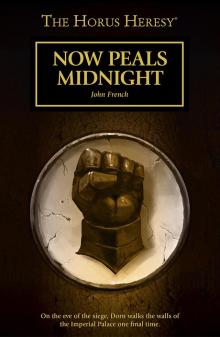 Now Peals Midnight - John French
Now Peals Midnight - John French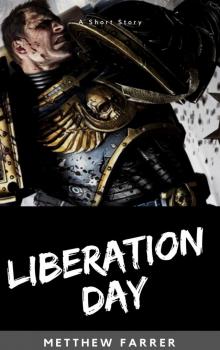 Liberation Day - Matthew Farrer
Liberation Day - Matthew Farrer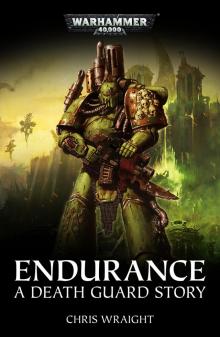 Endurance - Chris Wraight
Endurance - Chris Wraight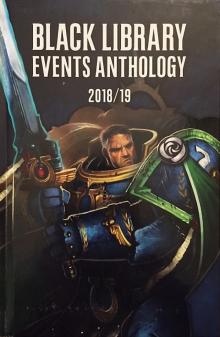 Black Library Events Anthology 2018-19
Black Library Events Anthology 2018-19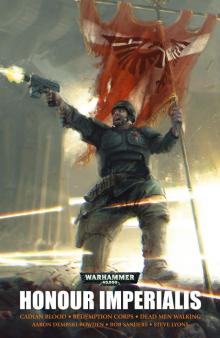 Honour Imperialis - Braden Campbell & Aaron Dembski-Bowden & Chris Dows & Steve Lyons & Rob Sanders
Honour Imperialis - Braden Campbell & Aaron Dembski-Bowden & Chris Dows & Steve Lyons & Rob Sanders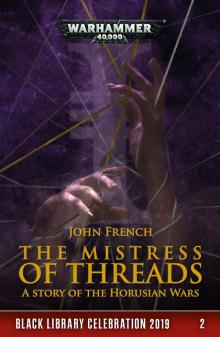 The Mistress of Threads - John French
The Mistress of Threads - John French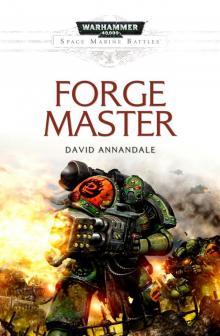 Forge Master - David Annandale
Forge Master - David Annandale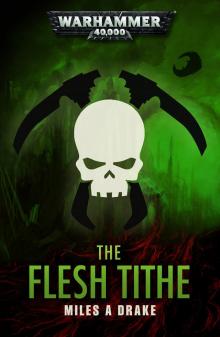 The Flesh Tithe - Miles A Drake
The Flesh Tithe - Miles A Drake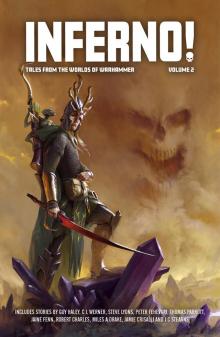 Inferno Volume 2 - Guy Haley
Inferno Volume 2 - Guy Haley Mercy of the Dragon - Nick Kyme
Mercy of the Dragon - Nick Kyme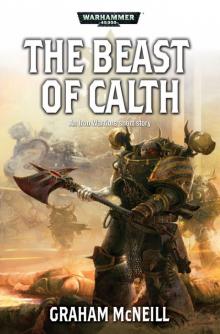 The Beast of Calth - Graham McNeill
The Beast of Calth - Graham McNeill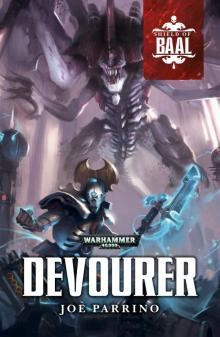 Devourer - Joe Parrino
Devourer - Joe Parrino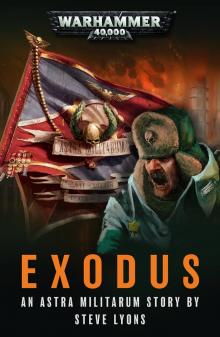 Exodus - Steve Lyons
Exodus - Steve Lyons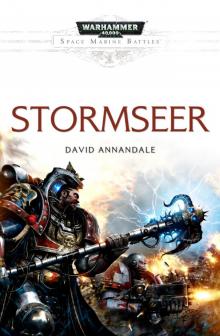 Stormseer - David Annandale
Stormseer - David Annandale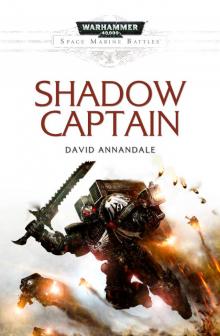 Shadow Captain - David Annandale
Shadow Captain - David Annandale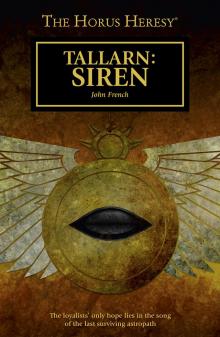 Tallarn- Siren - John French
Tallarn- Siren - John French The Grey Raven - Gav Thorpe
The Grey Raven - Gav Thorpe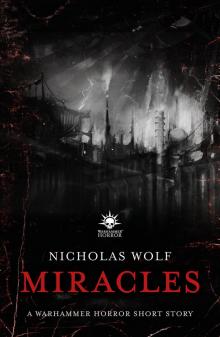 Miracles - Nicholas Wolf
Miracles - Nicholas Wolf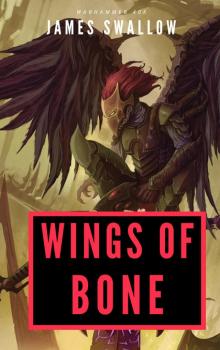 Wings of Bone - James Swallow
Wings of Bone - James Swallow